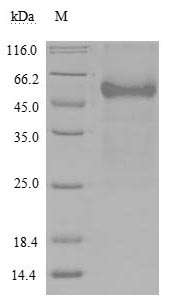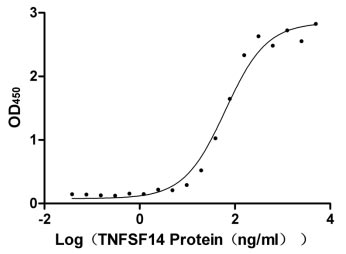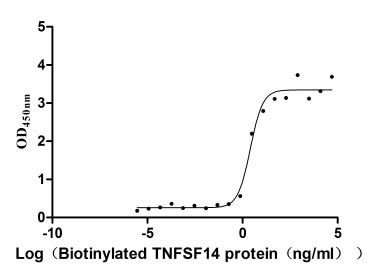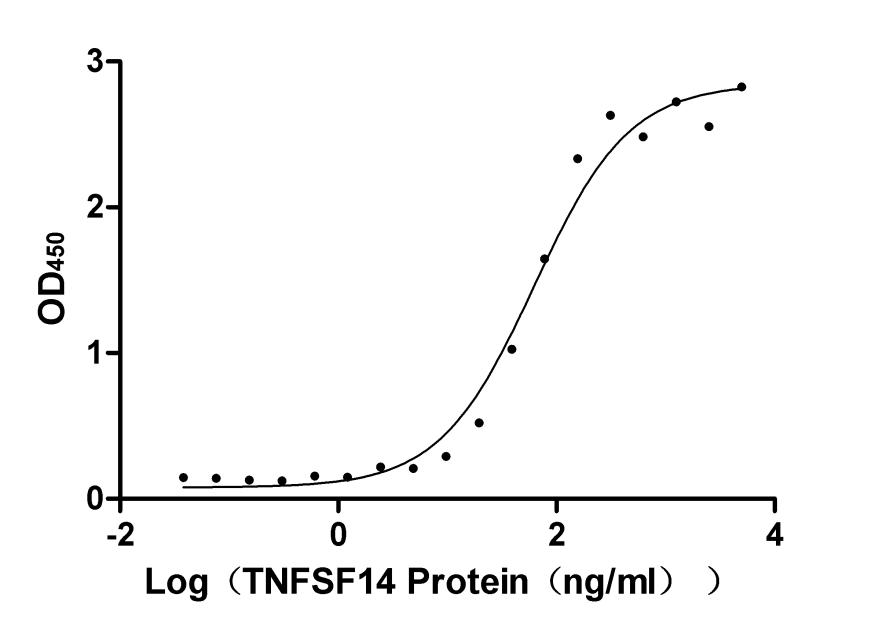A DNA fragment corresponding to the peptide of human TNFRSF14 was expressed with a C-terminal hFc-tag in mammalian cells. TNFRSF14 CSB-MP842173HU is a truncated molecule having amino acids of Leu39-Val202. Its purity is greater than 90% measured by SDS-PAGE. A molecular mass band of about 50 kDa was presented on the gel under reducing conditions. Its endotoxin level is less than 1.0 EU/ug determined by the LAL method. Through the functional ELISA, this TNFRSF14 protein has been validated as an active protein. And it is available now.
TNFRSF14, also known as CD270, LIGHTR, or HVEM, is mainly expressed in hematopoietic and lymphoid tissues. The ligation of TNFRSF14 and its ligands is involved in phagocytosis enhancement, anti-bacterial inflammation, and T cell co-stimulation or immunosuppression. TNFRSF14 also delivers a negative signal to T cells through B and T Lymphocyte Attenuator (BTLA) molecule and has been linked to a poor prognosis in various tumors.







